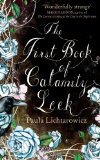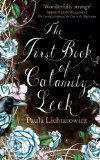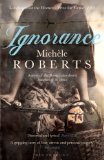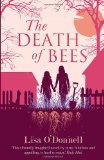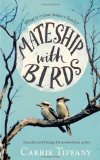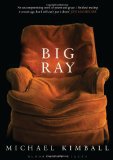
Big Ray by Michael Kimball
Five words from the blurb: father, died, guilt, unusual, understanding
Big Ray was a morbidly obese man who died alone in his home. His son, Daniel, is distressed that it took several days for anyone to discover his body and over the course of the book we see his grief and the turmoil that results from the difficult relationship he had with his father.
This book is written in an unusual style. It is made up of over 500 mini chapters. This gave the book a fast paced urgency, but also meant I could never become fully immersed in a scene. I found the continual flipping from one idea to another irritating and wished it had settled in a scene for more than half a page.
The writing was of a high quality and there were some lovely moments in the book, but overall the story was too ordinary.
I don’t understand my complicated feelings about my father. I hated him, but I wanted him to like me. I was ashamed of him, but I wanted him to be proud of me.
This is a compelling read, but I’m afraid I reached the end without any new insight.

.
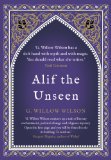 Longlisted for 2013 Women’s Fiction Prize
Longlisted for 2013 Women’s Fiction Prize
Alif the Unseen by G Willow Wilson
Five words from the blurb: Middle Eastern, mysterious, world, magic, djinn
Alif the Unseen is a unique book that combines computer science with fantasy. Alif is a Middle Eastern computer hacker who inhabits an almost familiar world. He falls in love with Intisar, royalty already promised to another man, but as a parting gift she gives him a special book that opens a door into another world.
This book is clearly genius, but I’m afraid it wasn’t to my taste. Fantasy is a genre I’ve never enjoyed and this book was too weird for me. I think my lack of knowledge of computer programming and Muslim mythology also contributed to my lack of appreciation for this book.
Alif heard Dina turn on music in her room-a cheerful debke dance song-as though she too, found the storm unsettling. He got out of his chair and curled up against the wall they shared. When his computer was on and connected to the grid, he never felt as though he was alone; there were millions of people in rooms like his, reaching toward each other in the same ways he did. Now that feeling of intimacy seemed fraudulent. He lived in an invented space, easily violated. He lived in his own mind.
I became increasingly confused until I eventually abandoned the book on page 75.
From the glowing comments from fantasy authors such as Neil Gaiman I’m sure this book pushes the boundaries for its genre and so I’d love to see it make the shortlist.
DNF
.
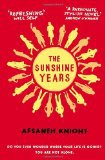
The Sunshine Years by Afsaneh Knight
Five words from the blurb: Sydney, thirty-somethings, relationships, observations, truths
The Sunshine Years is set in Sydney, Australia and follows a group in their thirties as they come to realise that they haven’t achieved anything worthwhile in their lives and are unlikely to do so.
The book is wonderfully entertaining, contains well developed characters with realistic flaws, and gives an insight into the hopes and fears of a generation who have failed to live up to their childhood dreams.
The book could be described as chick-lit, but it has a maturity and depth that lifts it above the majority of books in this genre. I spent a happy weekend involved in the lives of this group and developed an emotional bond with most of them.
If you can’t be happy in Sydney, you can’t be happy anywhere. Sydney put joy in the water and forgetfulness in the sand, and as long as you drank water and stood on sand, happiness would curl up and stick like heat from a campfire.
It had the perfect blend of light-hearted banter and deeper emotional insight and I recommend it to anyone looking for an entertaining read, especially if you are familiar with Sydney.

.
Have you read any of these books?
is especially good. Hopefully it will end as well as it began.





![]()
